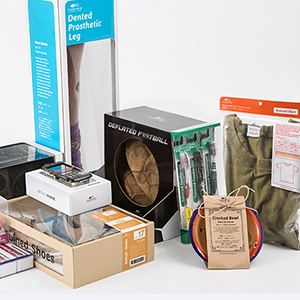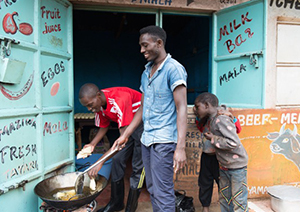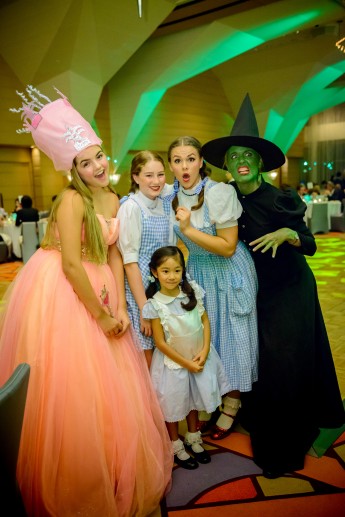The past year has been a difficult one for businesses, communities and individuals. With the Covid-19 pandemic forcing lockdowns and drastically changing how we live our lives, adaptation has been a must. Finding ways to ensure that business goes on has been a top priority.
For organisations who rely on events and campaigns to generate funds for charity and corporate social responsibility (CSR) initiatives, restrictions and social distancing have had a serious impact. ACUMEN spoke to three such groups about how they navigated the waters of 2020, what lessons they learned and how they plan to adapt this year.
The 2020 effect
Mirai no Mori is a not-for-profit organisation (NPO) that provides outdoor programmes for abused, neglected and orphaned youths in Japan. These programmes help support children as they grow up by teaching essential life skills. Executive Director Kozue Oka shared how coronavirus has impacted Mirai no Mori. “We have regretfully decided to cancel our Summer Camp, which is our main programme, as well as some of the weekend programmes and a couple of our Leader in Training—or LIT—programmes”.
Oka mentioned how the organisation has adapted to the new normal. While their usual activities utilise the outdoors, they did have to minimise the range of programmes taking place due to social distancing measures.
“As an alternative to our usual sleep-away Summer Camps, we hosted Summer Day Programmes in Tokyo in early August. Campers made the most of this time to be outside, embrace nature, play with their peers and be as creative as possible,” Oka explained. “It is our hope that these activities will provide a connection to the outside world, new routines within their constrained daily lives and the opportunity to continue with their experiential learning”.
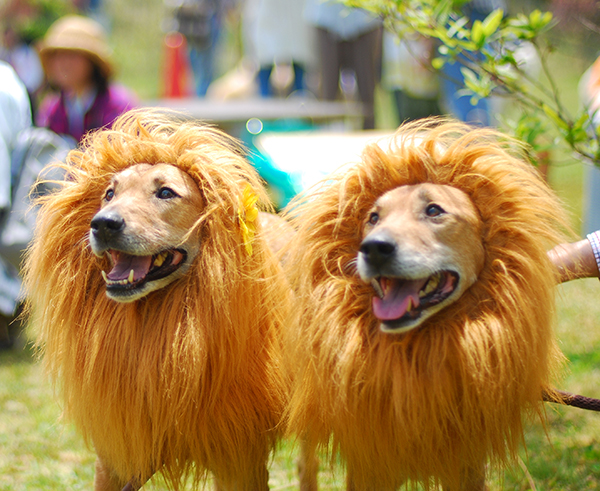 Elizabeth Oliver, founder of NPO Animal Refuge Kansai (ARK) shared how social distancing measures and Covid-19 restrictions meant they had to cancel their usual spring reunion and autumn BBQ party.
Elizabeth Oliver, founder of NPO Animal Refuge Kansai (ARK) shared how social distancing measures and Covid-19 restrictions meant they had to cancel their usual spring reunion and autumn BBQ party.
“Our regular monthly adoption event at Green Dog Square in Kobe has been cut back, as have events at other venues. Tokyo ARK, however, has still managed to hold weekly adoption events, since it is the only time people can meet the dogs up for adoption in the Tokyo area,” she said. “At ARK itself, we asked visitors and volunteers to limit their visits and to make an appointment before coming. Additionally, ARK saw an increase in animal intake during the pandemic. Although we had no intake due to the demise of an owner, we have had requests due to effects of Covid-19, such as financial problems, loss of jobs and bankruptcy”.
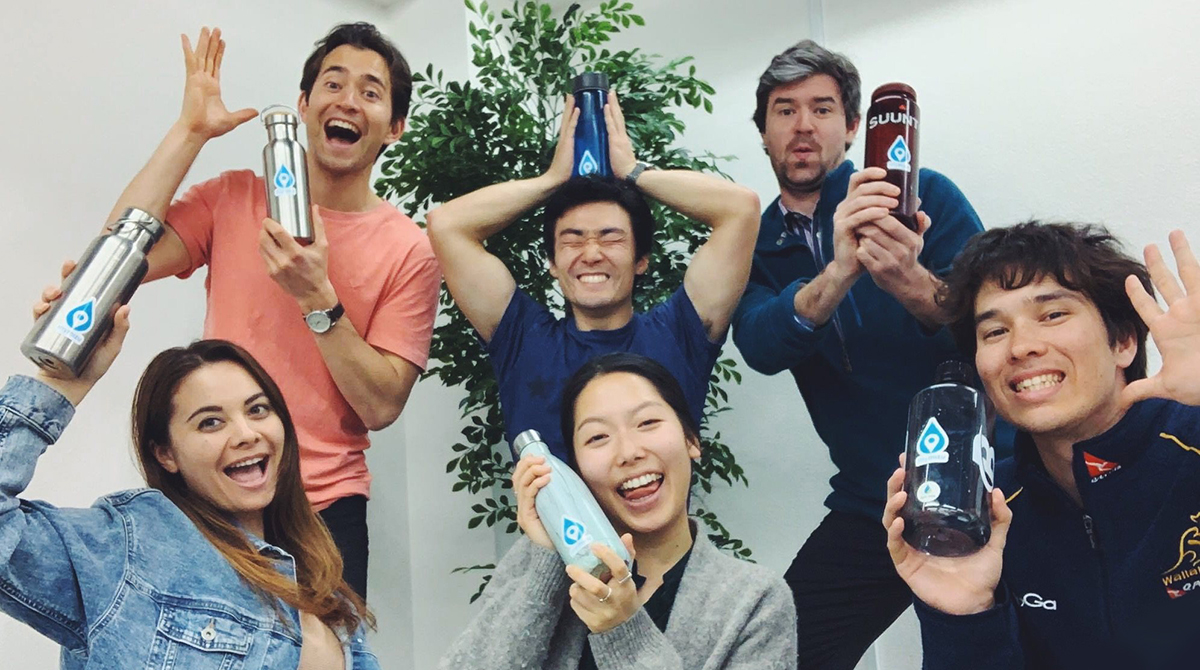
Finding success
Robin Lewis is co-founder of mymizu, a sustainable platform committed to reducing plastic waste by providing water refill spots around the world. He explained that, even though 2020 was difficult, the firm still managed to find success. “In the short term, we certainly experienced significant loss of revenue due to the cancellation or postponement of projects. However, after several walks in the park and brainstorming sessions, we came up with a strategy to not just survive but to thrive despite the difficult and uncertain times,” he said.
The mymizu platform has gained new users from 45 countries and grown their global network of water refill spots to 200,000, with more than 750 partner cafés, restaurants and other businesses.
“Some of the highlights of 2020 included launching exciting partnerships and collaborations for sustainability with leading brands, including Audi Japan, LIXIL and IKEA, as well as city governments, schools and universities,” Lewis said.
“We were also grateful to gain recognition for our work in 2020, including winning several awards, such as the Minister of Environment award—twice! We also became the Japan winner of the Chivas Venture competition and were selected as one of the 100 firms building future markets in Japan by the Nikkei newspaper”.
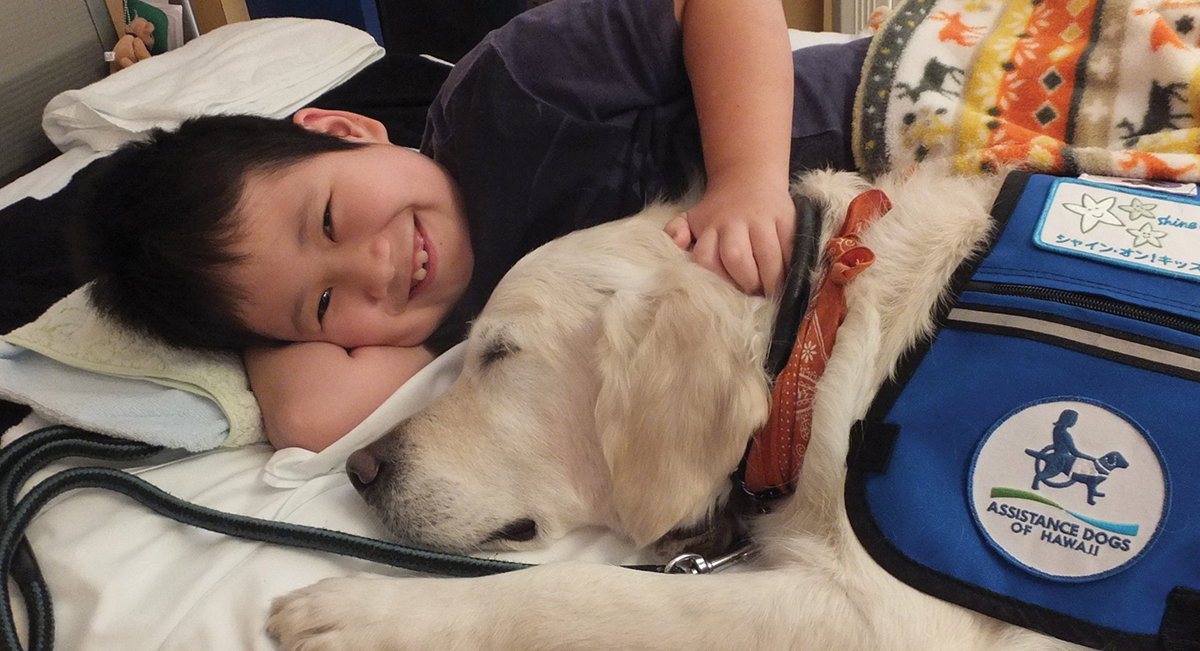
Personal effort
Another organisation that shared their 2020 experience with us is Shine On! Kids, an institution that supports seriously ill children in Japan through
a range of evidence-based psychological programmes—most notably pairing a specially trained facility dog with a clinician handler to make visits to children’s hospitals. Co-founder Kim Forsythe spoke about how the events of 2020 changed their person-to-person operations.
“The most significant impact was our ability to hold our usual in-person fundraising events. This resulted in a decrease of about 30% in our potential fundraising,” she said. “Of course, we had to scramble to find other fundraising options—in particular grants and crowdfunding—so that we ended the year with only a small deficit; but it was a stressful and challenging year in this regard”.
Ferris said that the nature of the organisation’s operations has allowed them to continue making a difference despite restrictions. “Because all our programmes are executed by medical professionals—such as nurses, child-life specialists and clinical psychologists—working in hospitals, Shine On! Kids was the only patient-support organisation, to our knowledge, that was able to continue working in hospitals for children in Japan during Covid-19. All in-hospital volunteer activities have been suspended since mid-2020, so most organisations that depend on the kindness of volunteers have not been able to carry out their work”.
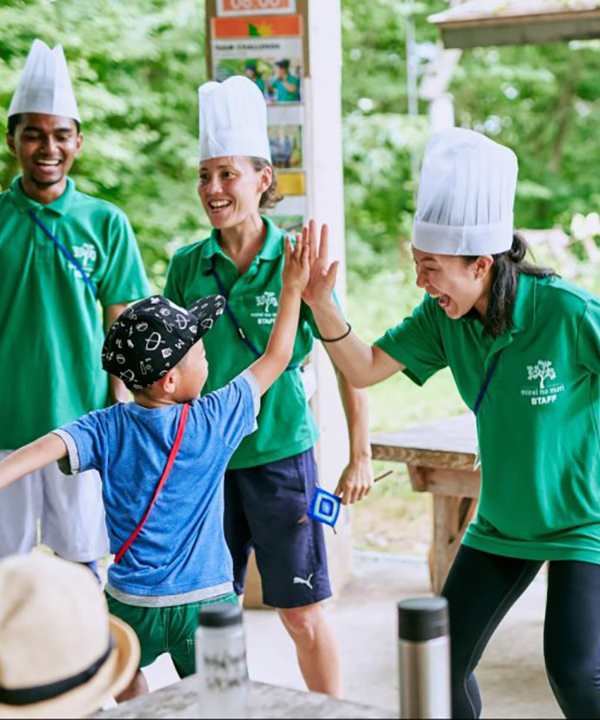 Going virtual
Going virtual
Due to social distancing measures and restrictions designed to slow the spread of the coronavirus, life went virtual for most of us in 2020—and this will continue in 2021. The ability to connect over the internet has been valuable for many organisations, including Mirai no Mori. Oka said they switched some of their LIT programmes online to ensure that children could still take away the essential lessons in a safe manner. The LIT programmes provide the kids with the opportunity to visit partnering firms to understand the workplace and get a better understanding of their life and options after graduation.
Mirai no Mori works with care homes mainly in the Kanto area. During the past year, they have been in close contact with these facilities to keep updated on their situation and needs. With many of the children having to stay indoors, Mirai no Mori developed the Mirai no Mori Activity Kit.
“It is a set of activities and educational materials to be sent directly to the care homes in our network,” Oka explained. “The kit includes video messages from recent camp staff and volunteers from around the world, some of our regular camp activities modified for the care home environment and other fun activities to keep them active and engaged”.
Also benefitting from the switch to virtual communication is Refugee Empowerment International (formerly Refugees International Japan). As Executive Director Jane Best said in this month’s publisher’s column: “It is easier to arrange online meetings—no travelling time, no need for a venue—and work with people globally, though sometimes the timing is challenging. We have also been able to arrange online meetings with partners in the field. This meant that members of the team in Japan could hear directly from those managing the projects. It is a positive change that we will continue even once we have more freedom of movement”.
Future support
At Shine On! Kids, Ferris spoke of a successful new programme created to deal with Covid-19 restrictions and their implications. “We launched a new programme called Shine On! Connections specifically in response to the extreme isolation and stress kids in hospital and their families were experiencing,” she said.
This programme aims to establish virtual psychological care by distributing communication technology and robots to hospitals in Japan. The hospitals can then choose from a selection of specialised educational content, including visits to educational facilities through the OriHime robots, which children can control with an iPad. These small robots give patients a sense of empowerment, are easy to clean—thus comply with infection control policies—and lay the foundation for technology learning from preschool age. “This has been very exciting and well received, and we will continue to provide this valuable service to support kids moving forward,” Ferris said.
For mymizu, a benefit of the pandemic has been growth in their online presence and community. “On Instagram alone we were able to reach more than 1.5mn people in 2020, and we will continue to work across our online channels to share valuable sustainability related information and build a community,” Lewis said.
“Our goal for this year is to reach and engage 3.5% of Japan’s population through our activities, in line with the 3.5% rule, which states that if 3.5% of a population actively takes part in non-violent, direct action, it can create enough momentum for societal change,” he continued. “For us, that means reaching and engaging 4.5mn people in Japan through our communications, our free app, our partnerships and joint products, and everything else we do. We also hope to recommence our beach cleans and in-person events in spring, hopefully with some warm weather and a more stable situation”.
Looking ahead
As we enter the year with a little more understanding and experience, looking to the future feels hopeful. Lewis certainly sees reason for optimism. “We have several new projects coming up, including the launch of joint products and services with several firms from different sectors, creative marketing campaigns related to sustainability and exciting initiatives with community groups, too. We will be making announcements in the coming months, so watch this space!”
Shine On! Kids also has new plans for 2021—provided no additional Covid-19 restrictions are required. “We will be placing our two Hospital Facility Dogs-in-training, Ty and Masa, at two hospitals this year! This is very exciting, because these are the first two dogs to be trained by Shine On! Kids”.
And for Mirai no Mori, keeping up with the evolving situation will be a focus. Oka said, “We will continue to adapt our programmes to this everchanging environment so that children have ongoing opportunities to gain the skills to create a better future for themselves”.
Those skills will serve them well in the bright future that is no doubt on the horizon thanks to the contributions of all these organisations and those who give selflessly of their time to make the world a better place.




